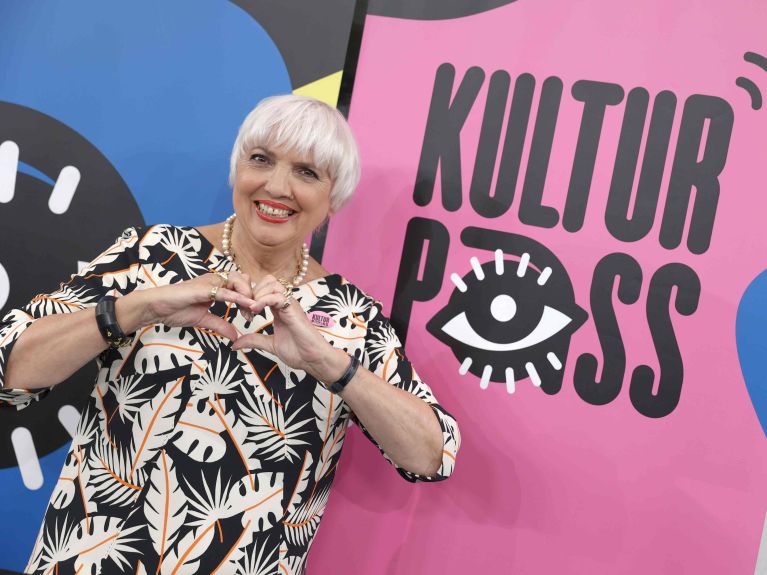“Our goal is a Europe of culture”
From concerts and plays to books, the Kulturpass aims to introduce young people to culture. Minister of State for Culture Roth hopes for the scheme to be extended to the whole of Europe.

The aim of the Kulturpass scheme is to inspire young people about culture. On reaching their 18th birthday, young people in Germany receive a one-off budget to spend on cultural activities. They can use the money to go to concerts, visit museums or buy books, for example. The Federal Government introduced the programme in 2023 with a budget worth €200. Since the start of 2024 the Kulturpass has been worth €100. Demand for the Kulturpass in Germany is high. Minister of State for Culture Claudia Roth is calling for a closer partnership with France and hopes to expand the scheme to as much of Europe as possible.
Frau Roth, has the Kulturpass model proved successful so far?
We’re delighted at the success of the Kulturpass. In its first year in 2023, over 285,000 young people registered for the Kulturpass in less than 6 months, and they have made great use of it. The Kulturpass gets young people into bookstores and cinema auditoriums, concerts and festivals, the theatre and opera, into museums, record stores and music shops, with over 1.18 millions recorded so far. Our cultural sector has also benefited from the Kulturpass following the difficult period of Covid, as shown by the total turnover of over €23.5m across all areas of the sector. This means we’ve reached our two most important goals of boosting the cultural industry and inspiring young people about our rich and diverse cultural life.
What do you see as the greatest strengths of the Kulturpass?
Its greatest strength lies in the fact that it creates a direct connection between young people and cultural providers. The Kulturpass gives providers a great opportunity to attract a new young audience and build a lasting relationship with them. And that’s exactly what’s happening very often, as many bookstores and cinemas are saying.
The greatest strength of the Kulturpass lies in the fact that it creates a direct connection between young people and cultural providers.
Where do you see a need for further developments?
This year we want to inspire even more young people and providers about the Kulturpass. We’re also continuing to work on making the app as user-friendly as possible. We’ve also expanded the range of categories included in the scheme, so this year users can also book workshops and purchase memberships through the Kulturpass, giving them access to music, dance or painting courses, for example, or library cards and annual museum passes.
Does the €100 Kulturpass have a safe future?
The extension of the Kulturpass scheme is great and important news for the cultural sector and anyone turning 18 this year. That said, given the state of the budget as a whole, securing the extension required a huge effort from all involved. It was against this background that the budget for those born in 2006 has been set at €100. I and my department will do everything we can to ensure that the Kulturpass can be continued in this form in years to come.

You have mooted a Franco-German partnership for the Kulturpass. How would this work in practice?
We worked closely with France when we first started developing the Kulturpass. Now we want to take that collaboration onto another level, by allowing French users of the “pass Culture” to benefit from it here, and vice versa. That will be particularly interesting for young people who live in border regions. We’re currently looking at the technical aspects of delivering it. We’re also in talks with our French partners and, in terms of the Franco-German border region, with Saarland as well.
Could you see a successful Franco-German partnership leading to a European Kulturpass with other countries?
In Europe it’s not only Germany and France which have Kulturpass programmes: Italy, Spain do as well, and Denmark will soon, too. There are also similar initiatives in Austria. So there’s already a European dimension to the Kulturpass. Now my team and I are focused on expanding that dimension, so through the EU we’re going to call on the next European Commission to take up the cause of the Kulturpass. Our goal is a Europe of culture, a shared cultural space across all of Europe.


